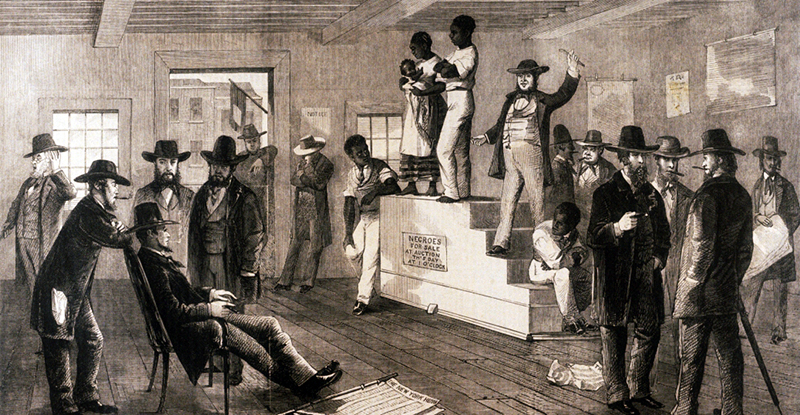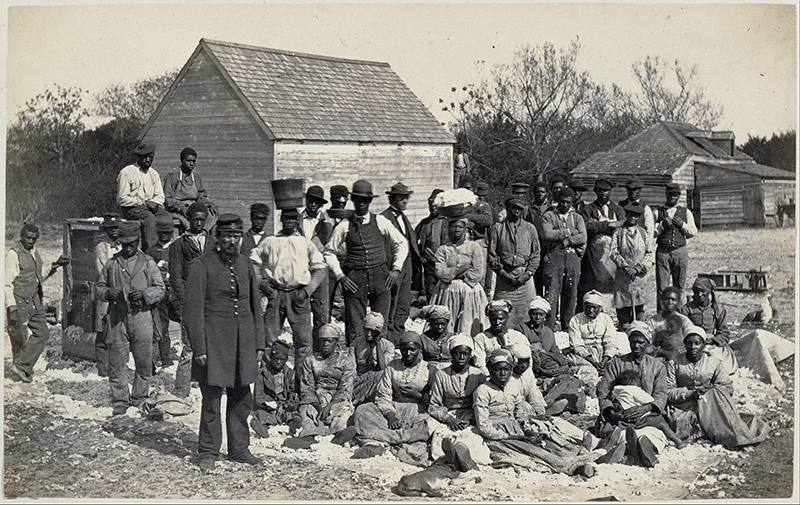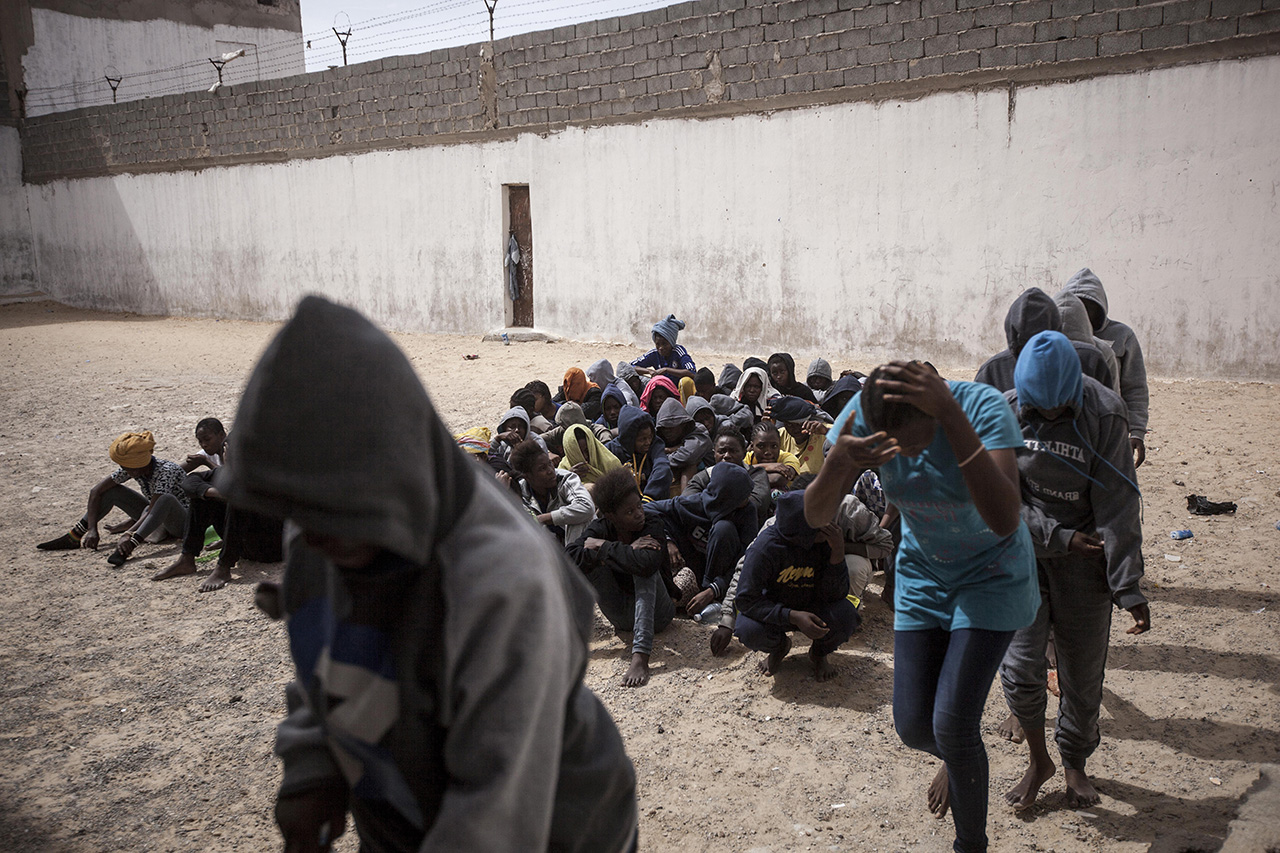Slave trade is considered to be the worst trade human beings have ever encountered. That is why it was abolished several decades ago by governments and institutions across the world. However this inhumane phenomenon is back. Situated at the north east of Africa Libya is becoming the turntable of the modern slave trade. How does the world get back to this?
By Lilian Neg, Africa correspondent for NewsVoice

All this started in early 2000 when migrants in huge numbers decided to transit through Libya to get to Europe. These migrants allowed certain mafia groups of Libyan origin to create a point of attraction of illicit and illegal trade which was condemned, reprimanded and banned in Libya under the reign of Muammar al-Gaddafi in 1969. People dealing with this practice were executed.
The migration overflow and the lack of management policy by African governments have driven many youth out of their various countries to seek for solutions and a better well-being. African youth are ready to join Europe at all costs in spite of the adversities.
Unfortunately, the tribulations of the journey and the realities met are factors they should have taken into consideration before making these trips of no return.
The majority of migrants came from sub Saharan African countries such as Nigeria which counts around 60%, Ethiopians, Sudanese, Malians, Senegalese, Ivorian, and Cameroonian etcetera. Before the discovery of this trade through the western media, people had the firm conviction that the worst challenge for these migrants must be the dangerous crossing of the Mediterranean sea.
In reality before arriving the coastal area, they are captured in the desert by unidentified men who keep them in prisons for months and as they are let out, they are sold at auctions as merchandise.

Slave trade an ancient practise
Slave trade is an ancient practice dated since the 13th century. Youths from Africa were captured without their consent and taken to other continents to serve in plantations. They were forced, tortured, maltreated, chained and humiliated.
After the Declaration of Human Rights and citizenship 1789, the world experienced revolutions led by Toussaint Louverture to the abolition of slave trade in 1793 in St Dominguez, followed by the French colonies 1794.
From 1802 to 1880 a series of countries joined the abolition movement such as America, Denmark, Argentina, Great Britain, Saint-Barthelemy (Sweden), Holland, Portugal, Brazil, Paraguay, Haiti, Chili, Costa Rica, Honduras, Panama, Belize, Salvador, Guatemala, Bolivia, Mexico, Uruguay, Nicaragua, Colombia, Ecuador, Venezuela, Romania, Peru, Porto Rico, Cuba, and the Ottoman empire.

In the early 1900 much of the gulf nations did the same. The League of Nations created in 1919 finally sealed the new era. On the 10th of December 1948 the Human rights Universal Declaration, clearly indicate the basic value of human race as such.
The slave trade in modern times
Nowadays, it is a voluntary departure of Africans, but poorly managed because most people leave their countries merely with the family blessings, the migration is destroying entire families in Africa.
How can we understand the gravity of the deaths registered so far at the Mediterranean Sea and the urgency of people to exceed the corridor of death? It is hard to understand the urgency of people to go to Europe at all costs, beyond the obvious risks.
In reality Libya is just the bottleneck of this malicious mafia network that begins in sub Saharan Africa. It is obvious that blacks sell their own brothers and relatives.
It is nevertheless the narrative of a young Cameroonian victim of this abuse named Fabrice Essomba who left Cameroon two years ago for an unknown destination. Essomba described the scene which led to his arrest as complicated.
After leaving Cameroon, he was sold to Nigerians who in their turn sold him to Algerians who finally sold him to Libyans but he was lucky to be rescued by an United Nations organization.
Jean Jack Ekane Lobe did not have the same opportunity. The slave masters are demanding a sum of 500.000 CFA franc [7500 SEK] for his release.
This is the daily life of thousands of Africans due to the death of Mohammar Kadhafi in 2011 and the subsequent crisis in Libya. This country has since then been very unstable and disorganized with the rise of extremists and radicals.
Read more: The [Swedish] Government, Parliament and Military Forces of Sweden reported for War Crimes in Libya
Libya is soiled by fraud, corruption, higher bid and diversion. That’s the reason why peace is compromising. The total chaos is in view. The situation is all the more destabilizing as the overcrowded population of other origins becomes a concern, and evil intentions by Libyans to profit and grow rich by practicing this shameful trade.
Immediate measures
African countries have to find immediate solutions. Cries for help will not be enough because migrants have already been sold to the oil monarchies. Kuwait, Qatar and Saudi Arabia turn out to be the arrival points of this trade. The lives of the slaves are constantly put in danger.
The African Union needs urgently to implement laws regarding the traffic of humans and the increasingly number of slaves. Not standing the fact Mauritania opted for the abolition of slavery. There are at least 100.000 slaves in that country.
African Human rights organizations, civil societies, governments have to take immediate actions because actions speak louder than speeches.
By Lilian Neg, Africa correspondent for NewsVoice
Related
SO-rummet: Svensk slavhandel (Sverige har under perioder varit inblandat i den grymma slavhandeln över Atlanten. Kring mitten av 1600-talet bildades det Svenska Afrikakompaniet som köpte slavar i Afrika för att sedan sälja dem i Västindien, och i slutet av 1700-talet var den svenska staten ägare till en egen ”slavö”, Saint-Barthélemy, i Västindien.)



